第52章
HOW I EMPLOYED MY TIME
Nevertheless, the fact that that summer I developed a passion for music caused me to become better friends with the ladies of our household than I had been for years.In the spring, a young fellow came to see us, armed with a letter of introduction, who, as soon as ever he entered the drawing-room, fixed his eyes upon the piano, and kept gradually edging his chair closer to it as he talked to Mimi and Katenka.After discoursing awhile of the weather and the amenities of country life, he skilfully directed the conversation to piano-tuners, music, and pianos generally, and ended by saying that he himself played--and in truth he did sit down and perform three waltzes, with Mimi, Lubotshka, and Katenka grouped about the instrument, and watching him as he did so.He never came to see us again, but his playing, and his attitude when at the piano, and the way in which he kept shaking his long hair, and, most of all, the manner in which he was able to execute octaves with his left hand as he first of all played them rapidly with his thumb and little finger, and then slowly closed those members, and then played the octaves afresh, made a great impression upon me.This graceful gesture of his, together with his easy pose and his shaking of hair and successful winning of the ladies' applause by his talent, ended by firing me to take up the piano.Convinced that I possessed both talent and a passion for music, I set myself to learn, and, in doing so, acted just as millions of the male--still more, of the female--sex have done who try to teach themselves without a skilled instructor, without any real turn for the art, or without the smallest understanding either of what the art can give or of what ought to be done to obtain that gift.For me music (or rather, piano-
playing) was simply a means of winning the ladies' good graces through their sensibility.With the help of Katenka I first learnt the notes (incidentally breaking several of them with my clumsy fingers), and then--that is to say, after two months of hard work, supplemented by ceaseless twiddling of my rebellious fingers on my knees after luncheon, and on the pillow when in bed--went on to "pieces," which I played (so Katenka assured me)
with "soul" ("avec ame"), but altogether regardless of time.
My range of pieces was the usual one--waltzes, galops, "romances," "arrangements," etcetera; all of them of the class of delightful compositions of which any one with a little healthy taste could point out a selection among the better class works contained in any volume of music and say, "These are what you ought NOT to play, seeing that anything worse, less tasteful, and more silly has never yet been included in any collection of music,"--but which (probably for that very reason) are to be found on the piano of every Russian lady.True, we also possessed an unfortunate volume which contained Beethoven's "Sonate Pathetique" and the C minor Sonata (a volume lamed for life by the ladies--more especially by Lubotshka, who used to discourse music from it in memory of Mamma), as well as certain other good pieces which her teacher in Moscow had given her; but among that collection there were likewise compositions of the teacher's own, in the shape of clumsy marches and galops--and these too Lubotshka used to play! Katenka and I cared nothing for serious works, but preferred, above all things, "Le Fou" and "The Nightingale"--the latter of which Katenka would play until her fingers almost became invisible, and which I too was beginning to execute with much vigour and some continuity.I had adopted the gestures of the young man of whom I have spoken, and frequently regretted that there were no strangers present to see me play.
Soon, however, I began to realise that Liszt and Kalkbrenner were beyond me, and that I should never overtake Katenka.